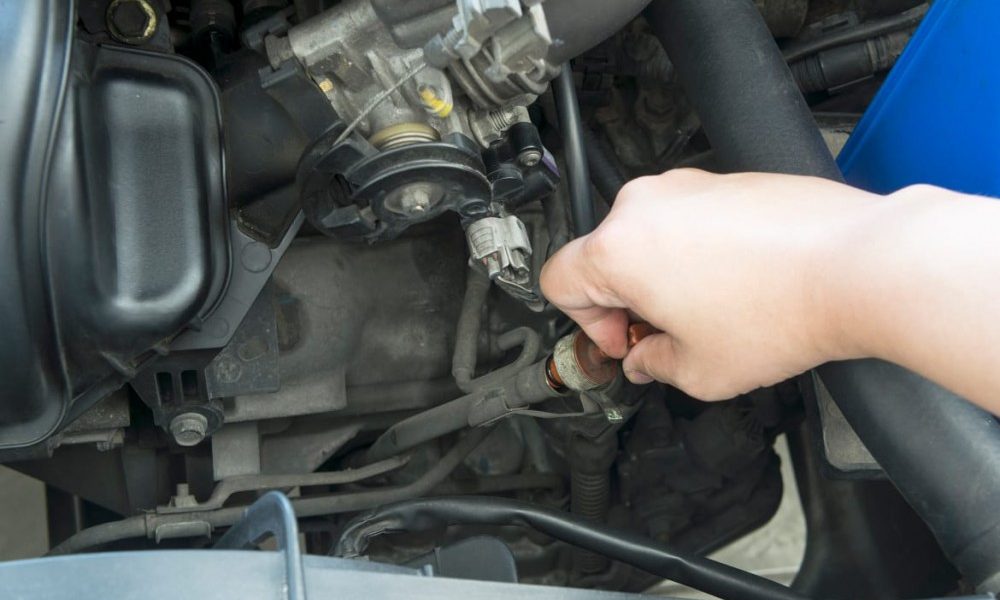Transmission fluid keeps the parts in your automatic transmission moving smoothly together. Like other vital automotive fluids, it can deteriorate over time. Hard use — such as frequent stop-and-go city driving, hauling heavy loads, trailer towing — will accelerate that deterioration. That kind of driving raises the operating temperature of the transmission, and heat puts more strain on the transmission and the fluid, which helps facilitate gear shifts, cools the transmission and lubricates moving parts.
How do I know if my transmission fluid or filter has gone bad?
Automatic transmission fluid darkens as it ages; if it becomes brown or almost black that is an indication it needs to be changed. Dirt or debris in the fluid and a burned odor also are signs. Many transmissions have filters that should be replaced or cleaned periodically, and because that usually requires removing a fluid pan, it should be checked when the fluid is changed. A clogged filter can prevent enough fluid from being pumped to vital parts of the transmission and cause gear slippage, sluggish shifting or a high-pitched whine when accelerating.
How often should I replace my transmission fluid or fluid filter?
Check the maintenance schedule in your owner's manual because the recommended intervals from vehicle manufacturers are all over the board, from as early as 40,000 miles to as long as 150,000. Some even say it never has to be changed, though many mechanics advise that it should be done every 50,000 miles to be safe. As with engine oil, it doesn't hurt to change transmission fluid more often than is recommended, but you might be paying extra for little benefit. If your transmission has a fluid filter, it should be changed every time the fluid is changed (although some filters can be cleaned).
Why do I have to replace my transmission fluid and filter?
Transmission fluid deteriorates over time, especially from hard use. Over years and thousands of miles, the fluid loses its ability to facilitate gear shifts, cool the transmission and lubricate moving parts. In addition, it picks up dirt and debris that can damage internal parts. Many transmissions have filters to catch that debris, but the filters can clog and prevent enough fluid from being pumped to vital parts of the transmission, causing gear slippage, sluggish shifting or a high-pitched whine when accelerating.
How much should I pay?
The cost of repairs can depend on where you are as much as it does on what you need fixed. To get an estimate for your repair, go to our estimator, plug in your car's year, make and model information, add your ZIP code, and choose the repair you need. We'll give you a range for what your repairs should cost in your area.



Leave a Reply